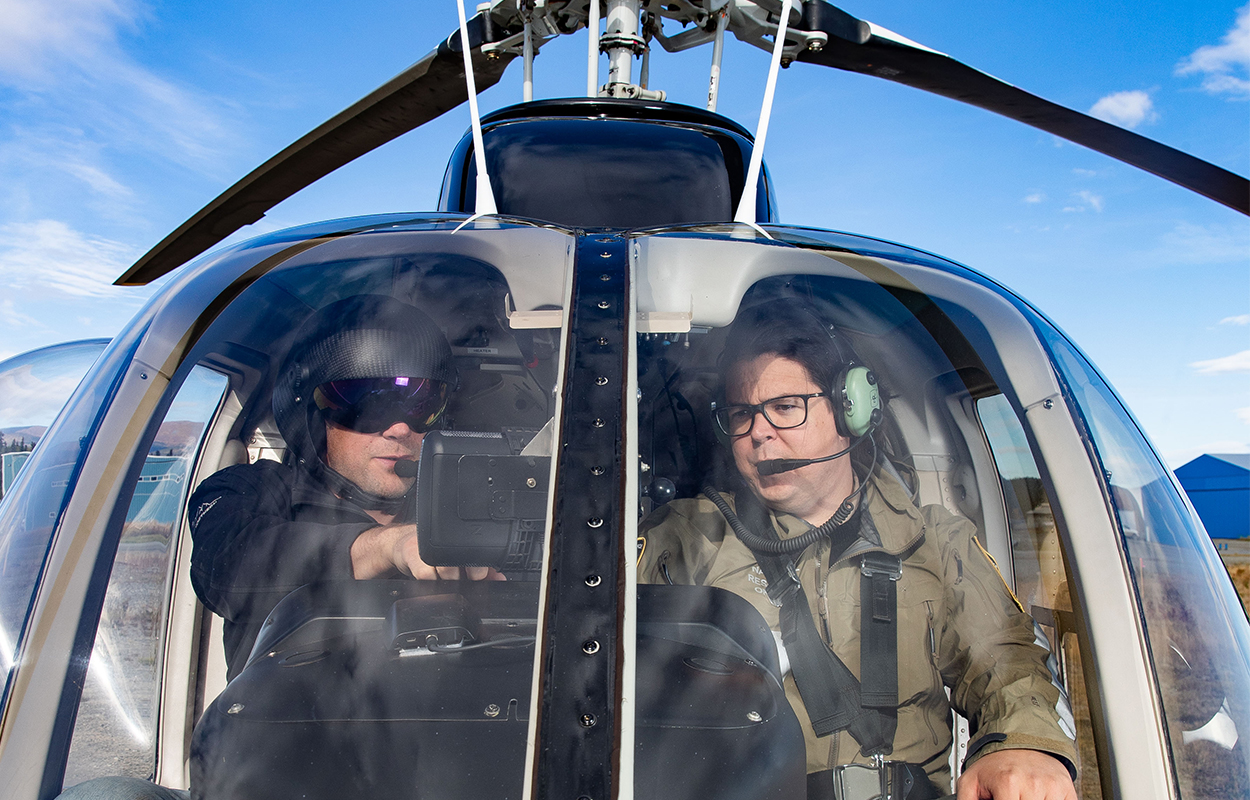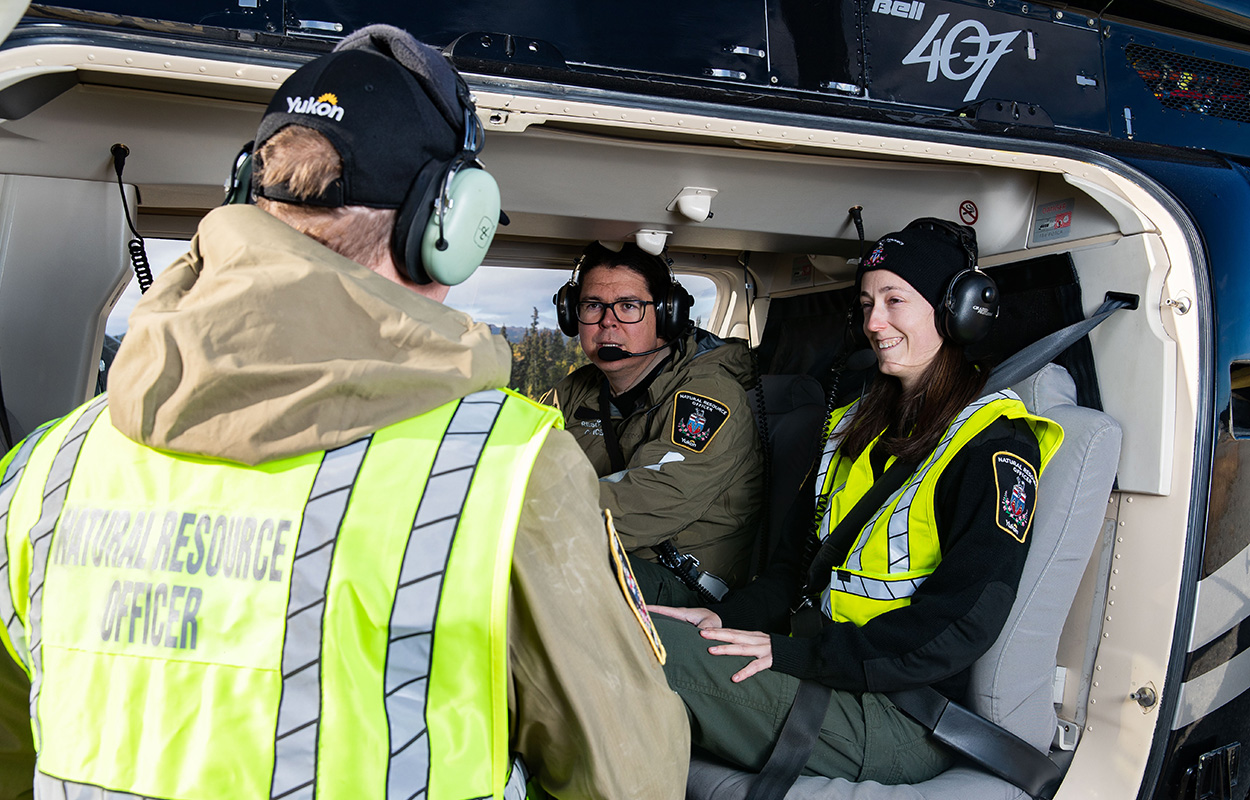
Natural resource officers
Join the team of natural resource officers, a key part of the Yukon’s conservation and environmental workforce.
What’s a natural resource officer?
A natural resource officer is responsible for the conservation and protection of the environment. They check and inspect activities related to the use or extraction of the Yukon’s natural resources.
Natural resource officers in the Yukon are responsible for many industries and functions, including:
- forestry;
- mining;
- oil and gas;
- land use;
- water quality monitoring; and
- flood forecasting.
Other regions in Canada have specific positions for each industry, like forestry officers or lands officers. We have a holistic approach at the Government of Yukon.
Natural resource officers work in 1 of the Yukon’s 5 districts. Each district has a team led by a senior officer that supports operations in their region. Each team helps promote the corporate mission and culture.
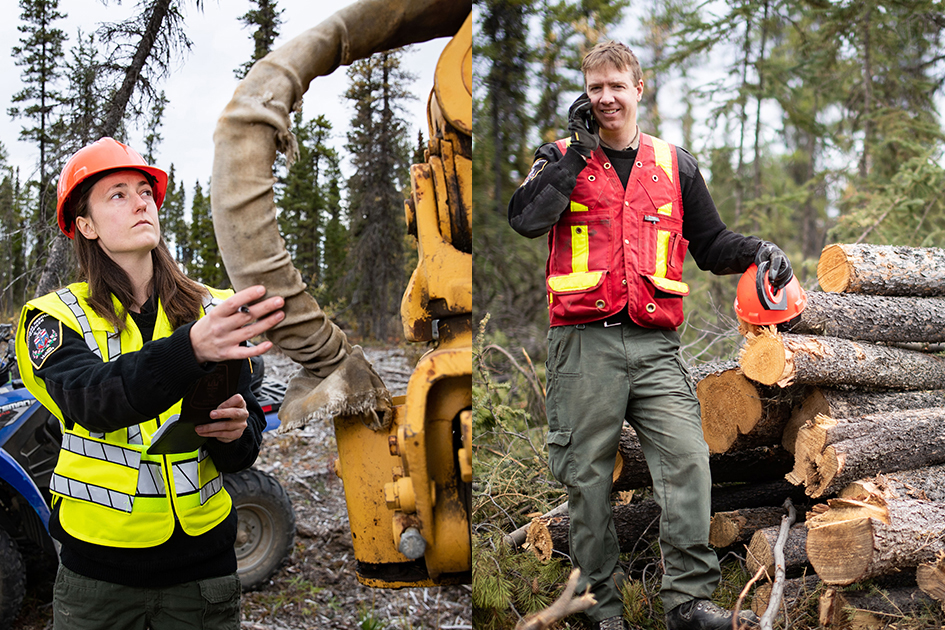
A day in the life
Every day is a new adventure, different from the last. Here’s what your typical day could look like.
It’s early autumn in the Yukon. The leaves are just starting to change. The sun rises early and warms the days to 20°C. You’re a natural resource officer and your first task is a routine inspection of a forestry operation. Another natural resource officer, less familiar with forestry inspections, joins you.
You drive on the highway, then take your work pickup truck along an established logging road. The forestry operation emerges around a corner. There are no immediate concerns when you arrive. A closer look reveals an oily pool under a piece of equipment. Also, a hydraulic line shows significant wear.
You and your colleague collect soil samples and take water samples from a nearby stream. You complete the inspection by walking around the cutblock. You’re looking to ensure the operation is meeting the terms and conditions of the forestry permit. Plus, you want to see compliance with their harvest prescription including:
- timber type;
- spacing between trees;
- tree retention; and
- soil disturbance.
One of the key parts of being a natural resource officer is to build rapport with industry members. That way, you’re as familiar with this producer as they are with you. They’re receptive to the concerns you have after the inspection. Everything else about their operation is in order. You work with your colleague to write the report that includes:
- direction on cleaning up the spill following environmental laws; and
- a date when you expect corrective action to be complete.
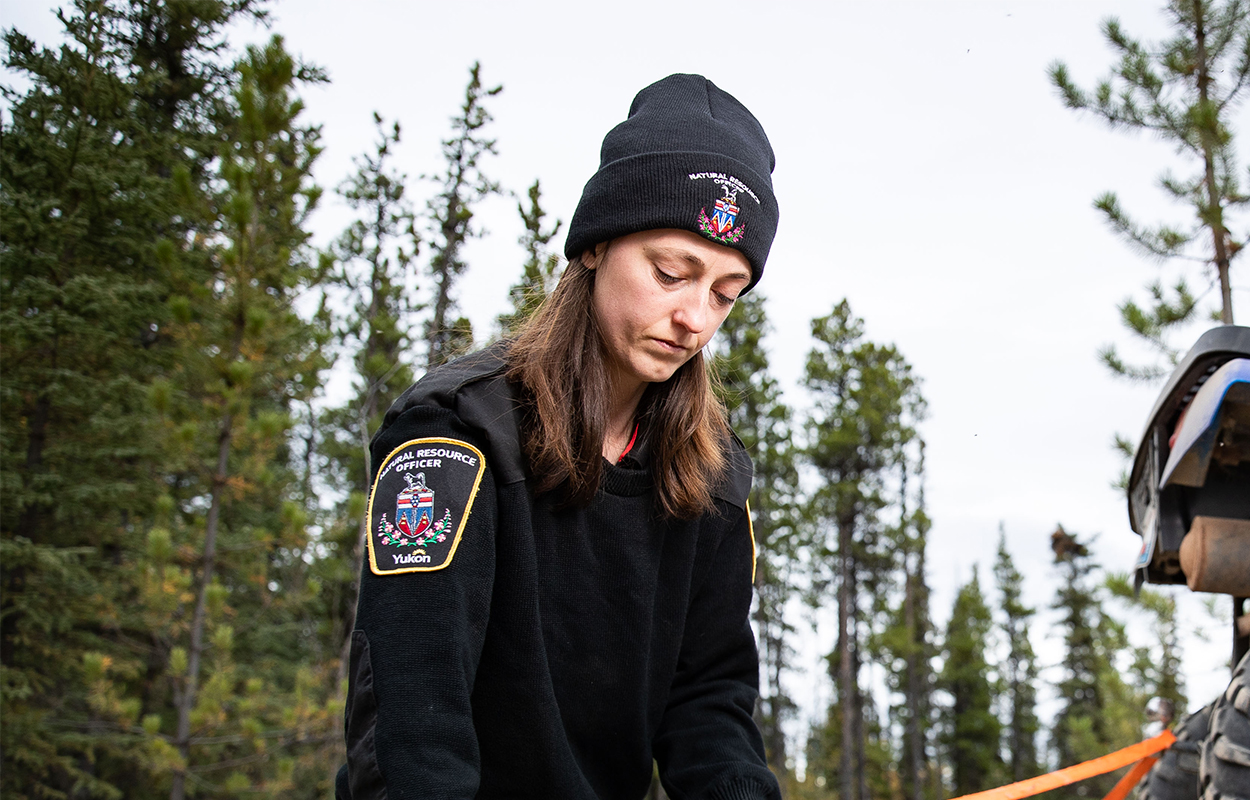
Sign up for job notifications
Becoming a natural resource officer
There is no single, set path to becoming a natural resource officer. Each officer brings a unique background and expertise to work for the benefit of the public, industry and the environment.
Discover the journey of 3 natural resource officers to learn all about the:
- unique backgrounds of natural resource officers;
- best parts of their job;
- highlights of their careers so far; and
- pieces of advice they'd give to potential applicants.
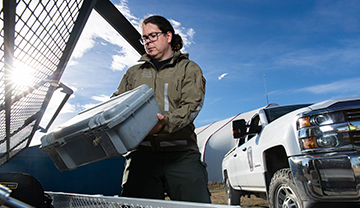
Living in the Yukon
Snapshot of the Yukon
- We have a population of 43,744, with the majority of people living in Whitehorse.
- The land area is 474,712 square kilometres, or roughly half the size of British Columbia.
- It’s not winter all the time – find out about seasons of the Yukon.
- There are lots of things to do across the territory, indoors or out.
- The 14 Yukon First Nations are important partners in the governance of the territory.
- Mapping the Way celebrates and raises awareness about Yukon First Nation land claims and self-government.
Perks of living in the Yukon
- Living close to nature – 95.3 per cent of Yukoners agree they have opportunities to enjoy nature near where they live.
- Northern Residents Deductions – you receive $11 per day as a residency deduction for living costs. You also get travel deduction for trips you take for vacation, family or medical reasons for yourself and an eligible family member.
- The universal child care model – all families who use participating licensed child care programs will save up to $700 per child per month. Licensed child care programs are available in every community in the Yukon.
- Children's dental health services – we have free basic preschool and school-based dental care.
- Yukon Health Care Insurance – coverage includes required hospital and medical services, some dental-surgical procedures, gender-affirming care, travel for the purpose of receiving medical treatment and air and ground ambulance within the Yukon.
- Yukon Standard Time – we do not “spring forward” or “fall back”.
- Sales tax rate of 5 per cent with no regional sales tax – we have the lowest sales tax rate in the country, aside from Alberta and the other 2 territories.
